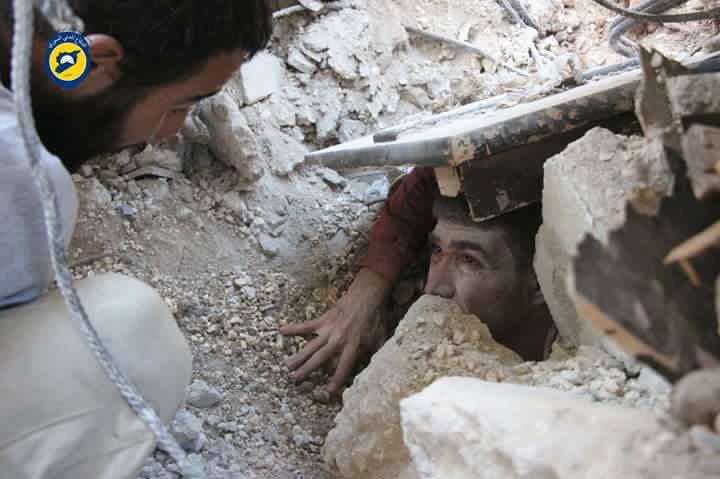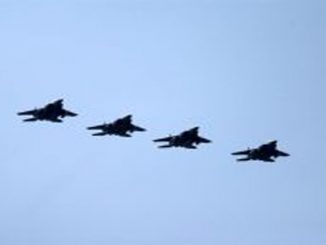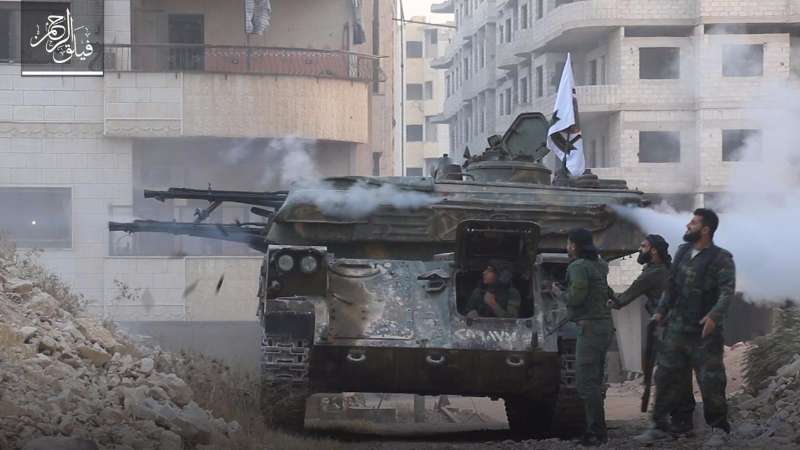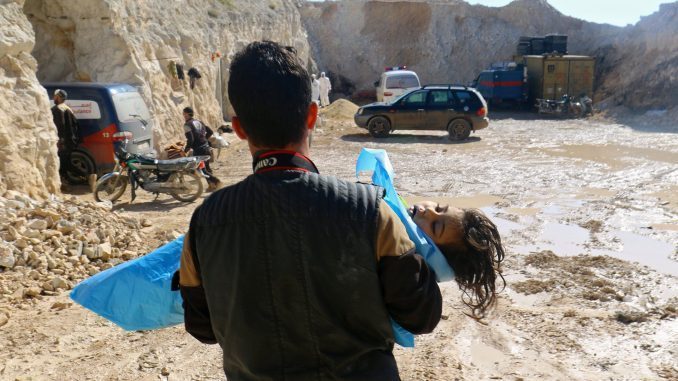
More than 60 civilians were killed in Syria in a new chemical attack carried out by Assad regime’s air force on the rebel-held Idlib province, doctors and monitoring groups have said, in a new chapter of Assad regime’s massacres using the prohibited weapons.
The Syrian Observatory for Human Rights said the attack caused many people to choke or faint, and some had foam coming from their mouths, citing medical sources who described the symptoms as possible signs of a gas attack. All the children were under the age of eight.
The Edlib Media Centre (EMC), a pro-opposition group, posted images that were widely shared on social media, showing people being treated by medics and what appeared to be dead bodies, many of them children.
“This morning, at 6:30 a.m., warplanes targeted Khan Sheikhoun with gases, believed to be sarin and chlorine,” said Mounzer Khalil, head of Idlib’s health authority. The attack had killed more than 50 people and wounded 300, he said.
“Most of the hospitals in Idlib province are now overflowing with wounded people,” Khalil told a news conference in Idlib.
The air strikes that hit the town of Khan Sheikhoun, in the south of rebel-held Idlib, killed at least 58 people, said the Observatory.
Khan Sheikhun houses thousands of refugees from the nearby province of Hama who have fled the fighting there.
Civilian areas in Khan Shaykhun were targeted with poisonous gases this morning. Initial rprts of 50 killed incl wmn & chldrn, 300+ injured. pic.twitter.com/ZQ6MAgsqNO
— The White Helmets (@SyriaCivilDef) April 4, 2017
Locals said the attack began in the early morning, when they heard planes in the sky followed by a series of loud explosions after which people very quickly began to show symptoms. They said they could not identify the planes. Both Syrian and Russian jets have bombed the area before.
Opposition activists and the AFP news agency, citing one of its journalists on the scene, later said a rocket had slammed into a hospital where the victims were being treated, bringing rubble down on medics as they struggled to deal with victims.
The civil defense, also known as the White Helmets – a rescue service that operates in opposition areas of Syria – said jets struck one of its centers in the area and the nearby medical point.
This attack is the deadliest chemical attack in Syria since sarin gas killed hundreds of civilians in the rebel-held Ghouta area near the capital in August 2013. Western states said the Assad regime was responsible for the 2013 attack but it denied the charge.
#Syria Chaos in front of #WhiteHelmets headquarter in Khan Sheikun #Idlib after airstrike Sarin toxic gas. pic.twitter.com/Ss5dlsZPWH
— Muhamed Al-khamis (@janatulnaeem02) April 4, 2017
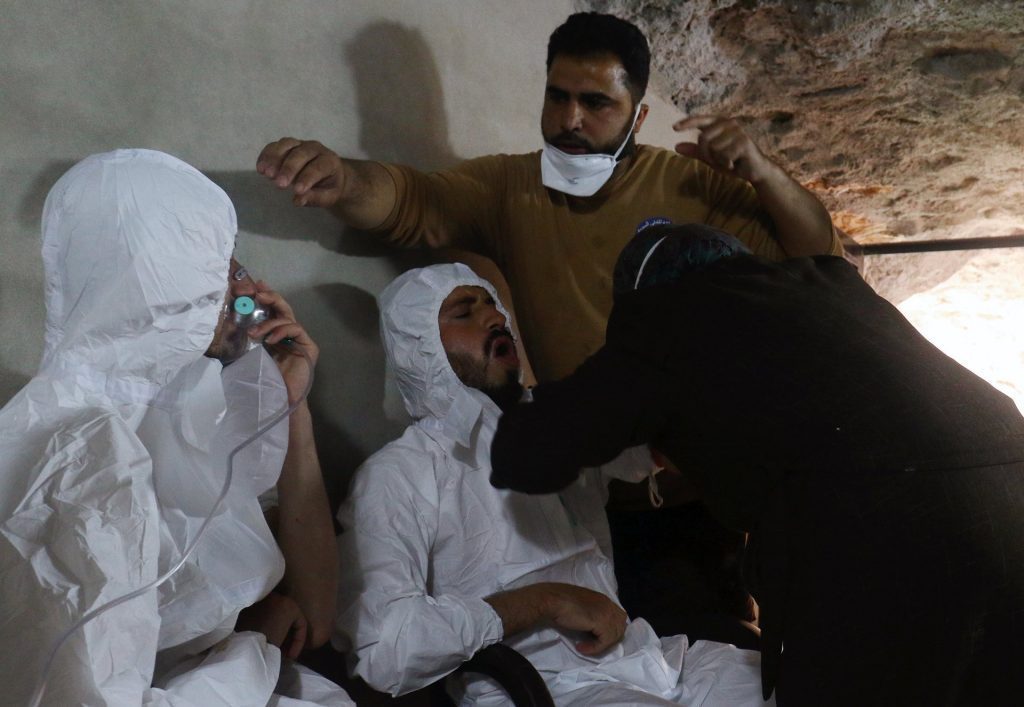
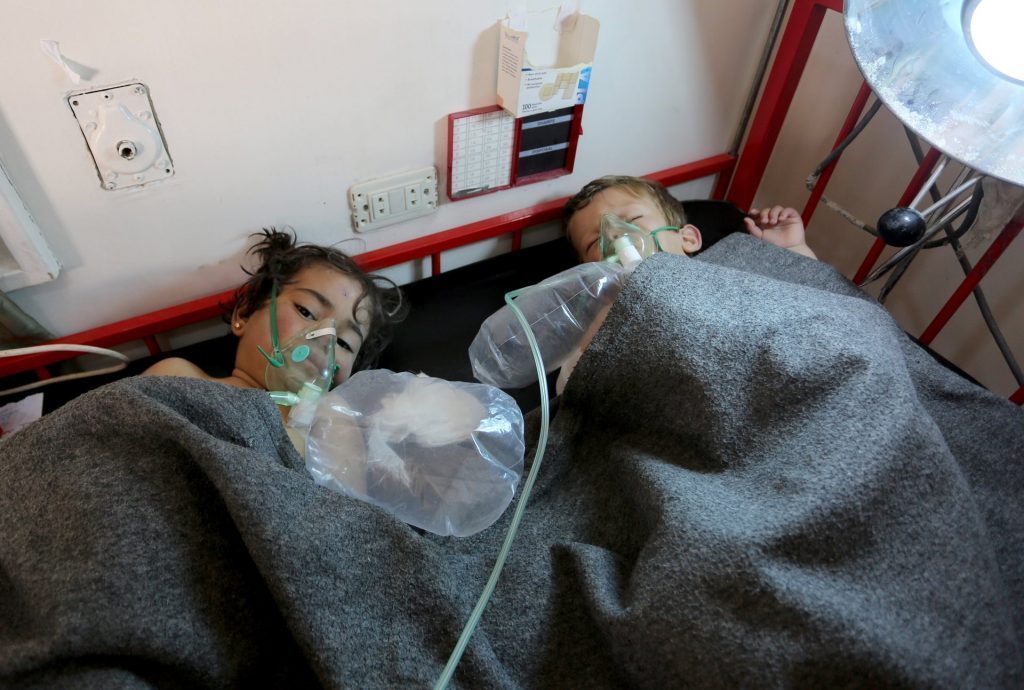
Hundreds affected by the attacks
Journalist Alan Fisher said locals on the ground expected that the number of dead would increase and that many of the wounded were children.
“There were people fainting, they were vomiting, they were foaming at the mouth,” Fisher said.
“In that situation, the treatment tends to be to try and strip people off, to get the chemicals away from their bodies, to hose them down as quickly as possible. But even then some of the pictures that have been posted on social media in the last couple of hours show very young people struggling for breath, many people dead where they fell.”
The Syrian American Medical Society confirmed the news through its medical centers on the ground.
“In this most recent attack, dozens of children suffocated to death while they slept,” said Ahmad Tarakji, the head of the Syrian American Medical Society, which supports hospitals in opposition-controlled areas in Syria. “This should strike at the very core of our humanity. How much longer will the world fail to respond to these heinous crimes?”
SAMS said its doctors had determined that the symptoms of the patients were consistent with exposure to organic phosphorus compounds like the nerve agent sarin, which is banned by the chemical weapons convention.
“Everyone is horrified and the children are in total shock,” said Mohammad Hassoun, a spokesman for civil defence rescue workers in the nearby town of Sarmin, which received 14 of the wounded.
Hassoun said the victims were bleeding from the nose and mouth, had constricted irises and suffered from convulsions.
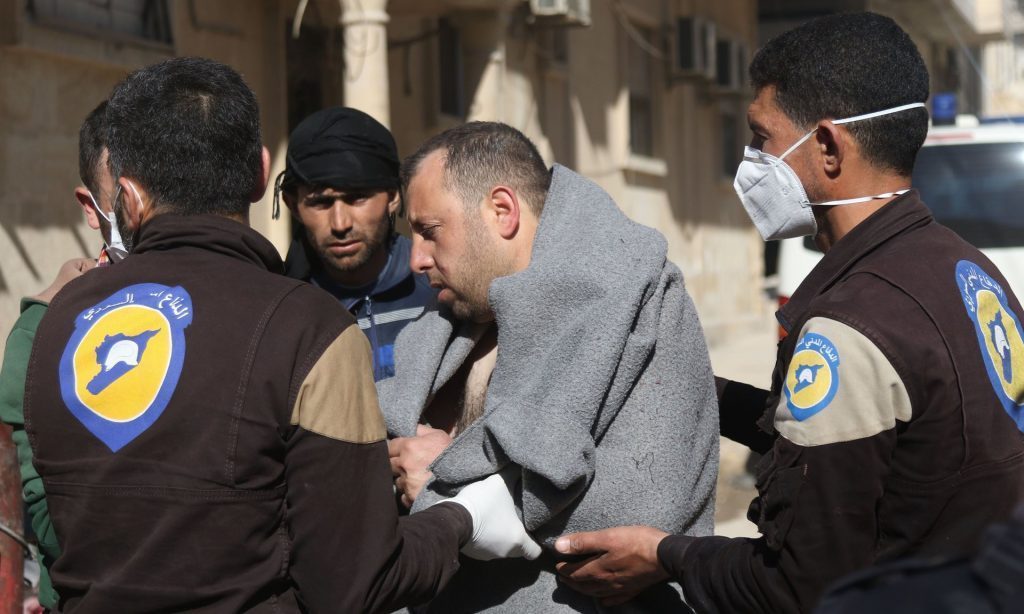
The Lukeworm International Response is a License For Assad to Carry on With His Crimes#Syria #Idlib #IdlibGasAttack #KhanSheikhoun pic.twitter.com/mzH9uKPL9I
— Syrian Coalition (@SyrCoalition) April 4, 2017
The casualties have been distributed across a wide range of hospitals in Idlib, with some sent north towards Turkey. There were reports that casualties driven to the Bab al-Hawa crossing on the Turkish border were experiencing difficulties in entering the country for emergency relief.
“The total number of wounded is incredible, so far it’s over 200,” said Mohammad, a doctor at another hospital in Idlib.
“We received over 20 victims and most of them are children, and two of them in the ICU are extremely critical. There are a lot of injured and most of these who were near the epicentre of the attack are either dead or in intensive care.
“The families are in a terrible state because they expect the victims to die.”
Mohammad said the victims he had seen had constricted irises, low oxygen and poor blood pressure and were drifting in and out of consciousness. Many were on respirators.
Few hospitals in Idlib have the capacity to deal with the symptoms of chemical attacks due to the repeated bombing of medical facilities by forces loyal to the government and lack sufficient oxygen tanks to treat victims.
“The world doesn’t care and no one will do anything,” said one British doctor working in northern Syria to assist local hospitals. He shared footage of the patients arriving at his clinic.
Do u still doubt that #Sarin is being used on us? Non-reactive pinpoint pupils! We have samples. Will anyone care!? Who will stop it?#Syria pic.twitter.com/WmhDZgLVA6
— Dr Shajul Islam (@DrShajulIslam) April 4, 2017
This is today in Syria in #Idlib. Hi @realdonaldtrump do you love this? pic.twitter.com/Rux9d7aV36
— Bana Alabed (@AlabedBana) April 4, 2017
Another crime, no real acts
The attack came a day after the US ambassador to the UN, Nikki Haley, said the US government was no longer focused on Assad’s removal from office, and as a two-day conference on Syria’s future, hosted by the EU and UN, began in Brussels.
The Syrian opposition described the attack as “appalling” and called on the UN security council to take action.
“The Assad regime continues to use internationally prohibited weapons in bombing civilian areas in a blatant violation of the fourth Geneva convention and UN security council resolutions 2118, 2209, 2235 and 2254,” the opposition Syrian coalition said. “These crimes would not have happened again had it not been for the lukewarm response by the international community and its failure to ensure protection for civilians.”
The international chemical weapons watchdog said it was gathering and analysing information. The French foreign minister, Jean-Marc Ayrault, demanded an emergency UN security council meeting.
“A new and particularly serious chemical attack took place this morning in Idlib province. The first information suggests a large number of victims, including children. I condemn this disgusting act,” France’s foreign minister, Jean-Marc Ayrault, said in a statement.
“In the face of such serious actions that threaten international security, I ask for everyone not to shirk their responsibilities,” he added.
Turkey’s President Recep Tayyip Erdogan told Russian President Vladimir Putin that the “inhuman” attack could endanger peace talks, AFP reported, citing sources.
The raid in Khan Sheikhun indicates Assad’s growing confidence. He has wrested control of territory from the rebels, including the entire city of Aleppo, in recent months. His regime has benefited from the unflinching support of Moscow and Shia militias backed by Iran, as well as waning support for the opposition by its allies in the region and the new US administration.
The attack will refocus attention on the failure of the international community to prevent the worst abuses in Syria’s war, and casts doubt on a signature achievement of Barack Obama’s, which negotiated the presumed destruction of Assad’s chemical arsenal in 2013.
The Syrian crisis began as a peaceful demonstration against the injustice in Syria. Assad regime used to fire power and violence against the civilians and led to armed resistance. 450.000 Syrians lost their lives in the past five years according to UN estimates, and more than 12 million have lost their homes.

